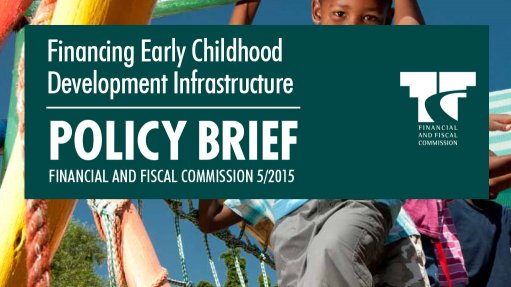
The provision of adequate and quality early childhood development (ECD) is an important developmental goal and a constitutional obligation of government. Despite the robust policies and evidence of the benefits of ECD, the sector remains inequitable and insufficiently resourced.
The majority of children that attend ECD centres are catered for in informal facilities that have little or no early education activities. Although the physical condition of ECD facilities has improved since 2001, many (40%) are in need of urgent maintenance and most (70%) are unsuited to providing ECD services. Public funding for constructing and maintaining ECD infrastructure is limited, unstructured and highly fragmented.
No coherent framework for financing ECD infrastructure exists, partly because of policy ambiguities over which sphere of government is responsible for funding and partly because legislation prohibits government from directly funding community and privately owned ECD facilities. As a result, ECD infrastructure financing programmes vary markedly across provinces and municipalities. Several financing models are available to government that could help address the ECD capital funding needs.
Government needs to take active responsibility to stimulate investment in ECD facilities. To this end, the Financial and Fiscal Commission recommends that government provides a capital subsidy (full or partial) for constructing and/or upgrading ECD facilities, that the Department of Social Development introduces capital subsidies for self-identified private ECD facilities in poor areas, and that national and provincial departments of social development develop an ECD infrastructure sector plan.
Report by the Financial and Fiscal Commission